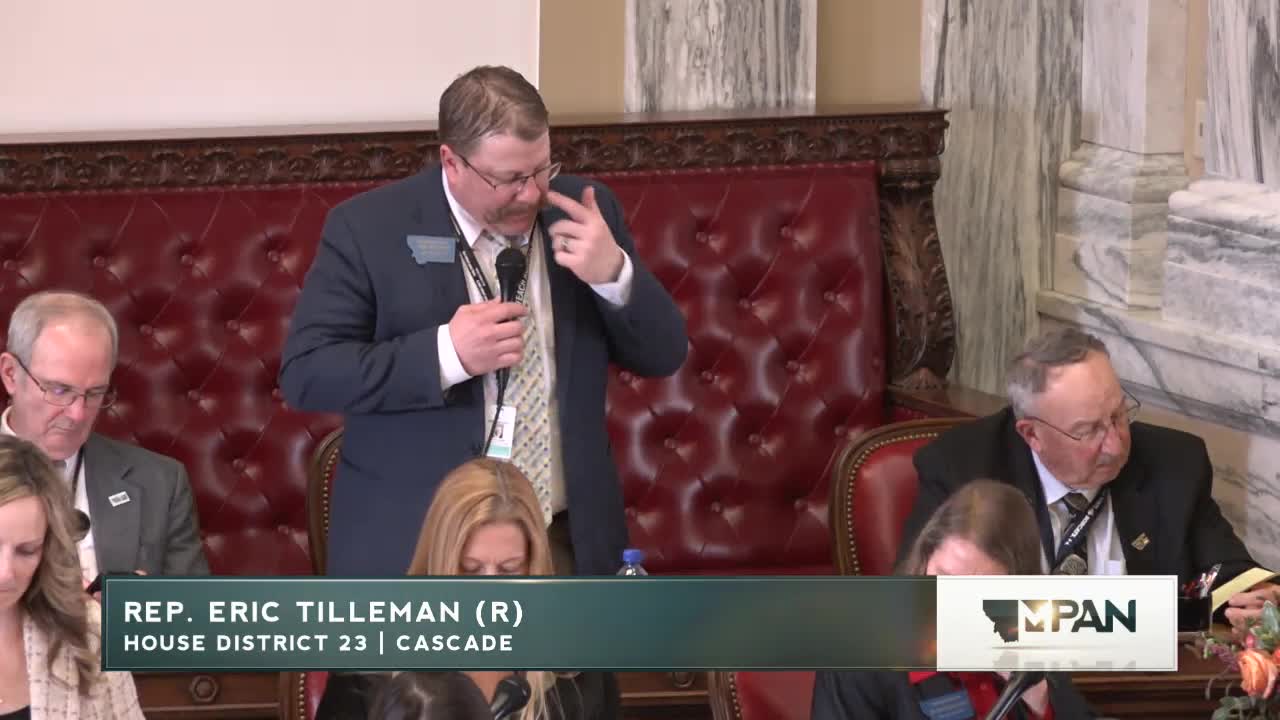Montana House votes to keep Medicaid expansion (HELP Act) in place, rejects key waiver amendment
Get AI-powered insights, summaries, and transcripts
Subscribe
Summary
The Montana House voted to recommend that House Bill 245, which would remove the statutory sunset for the HELP Act Medicaid expansion, do pass after hours of debate and votes on amendments; a proposed amendment to direct the department to reapply for a federal waiver failed, but the main motion passed 63-37 in committee and later on the floor.
Representative Frank Butchery, sponsor of House Bill 245, urged members to retain Montana’s Health and Economic Livelihood Partnership (HELP) Act permanently, arguing the program has reduced uncompensated care, supported rural hospitals and increased workforce participation. "This program is a great example of Montana ingenuity," Butchery said on introduction of the bill, citing statutory language and prior session work.
The bill’s nut graf: HB 245 would remove the scheduled sunset on the HELP Act and leave the program in statute so funding and eligibility decisions are handled through the regular appropriations and legislative process rather than by automatic expiration. Supporters described the program as having cut the uninsured rate and helped sustain rural health care; opponents warned of long-term fiscal exposure if federal funding changes.
On the floor and in committee, debate focused on federal matching funds, fiscal exposure to the state if federal FMAP levels fall, and whether the bill was the right vehicle to pursue changes such as a federal waiver or work requirements. Representative Falk offered an amendment to direct the Department of Public Health and Human Services to reapply for a federal waiver (to permit work requirements); the chamber voted the amendment down, with a roll call noting "65 have voted no." Representative Gillette and others said the department supported reapplying for a waiver, but proponents of the amendment were unable to carry it.
Representative Butchery moved the committee report recommending HB 245 do pass. The committee-of-the-whole recorded a vote of 63 in favor and 37 opposed on that motion. Representative Durham later called for cloture on further debate; the cloture motion passed with 85 ayes and 14 noes, cutting off further floor debate. On final committee-report adoption later in the day the House recorded a separate roll call (committee report adoption) of 93 ayes and 5 noes.
Supporters invoked outcomes they said the program produced: lower uncompensated care at rural hospitals, work placement and reduced reliance on emergency care. Opponents argued removing the sunset locks the state into a program with multi‑hundred‑million dollar annual cost exposure and could make future policy changes harder; Representative Mercer and others urged more granular appropriations review before permanently removing the sunset.
Discussion vs. decision: debate and amendments were recorded and described; the House took formal action to recommend passage (committee vote and committee-report adoption) and defeated the waiver-directing amendment. The transcript includes multiple member remarks and roll-call tallies supporting the recorded outcomes.
What’s next: Because the House approved the committee report and adopted it, HB 245 moves forward in the legislative process consistent with the chamber’s rules; additional budgetary and statutory detail will be considered in subsequent conference with the Senate and in appropriation deliberations.
